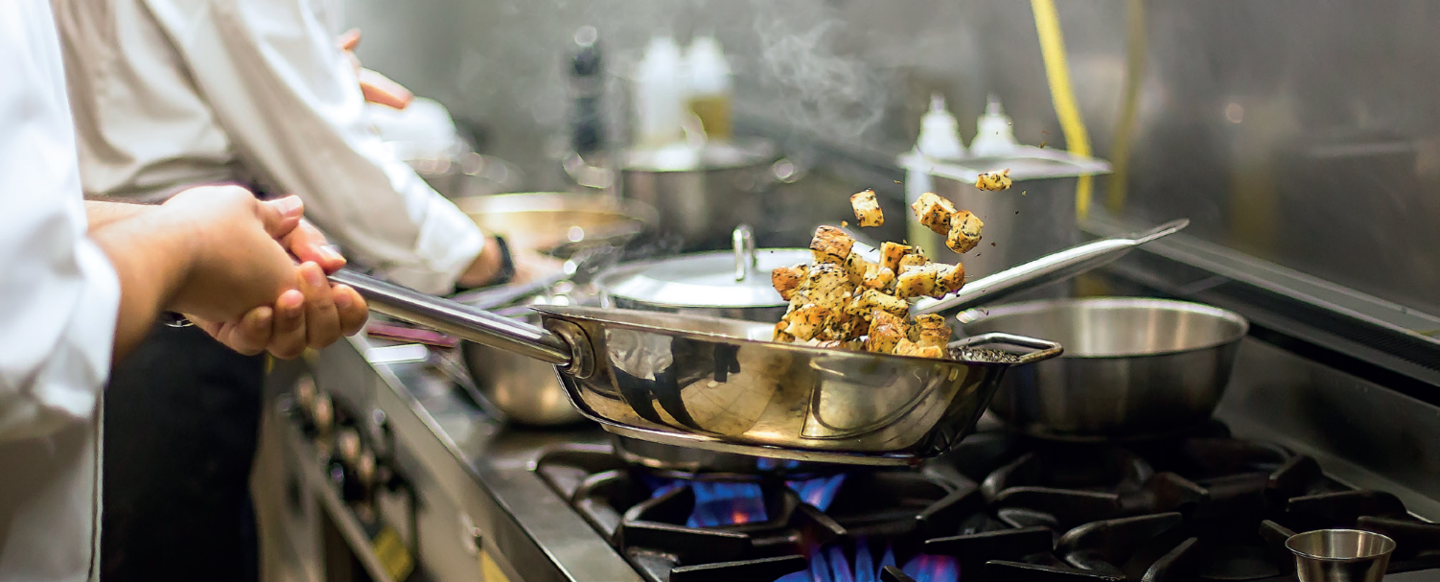Food safety tips
Get all the information you need to running a food business in Bayside.
Find out about
- Tips for operating a food premises
- Food safety programs and record sheets
- Food safety in the community - Food recalls, allergens, and training
Useful documents:
Food safety tips
We take food safety seriously and expect every business to comply with their legal requirements to serve safe and suitable food to the public.
To help business meet their responsibilities, we have put together key food safety tips that reflect what an Environmental Health Officer would generally look for when undertaking an assessment on your food premises.

-
Provide an adequate supply of food grade sanitiser to sanitise food contact surfaces, like food preparation benches, chopping boards, and food preparation utensils.
-
Provide a calibrated, digital probe thermometer to accurately monitor and record core food temperatures.
-
Clean and sanitise your calibrated, digital probe thermometer between uses.
-
Provide your hand wash basins with warm running water, a supply of liquid soap and disposable paper towelling to ensure food handlers can wash their hands and safely handle food.
-
Keep your hand wash basins unobstructed at all times.
-
Complete all the necessary Class 2 food safety records. If you require assistance with your record keeping requirements, please contact the Environmental Health Unit or 9599 4417.
-
Clean and sanitise of all food contact surfaces to reduce the risk of cross contamination to the food you handle and prepare.
-
Clean all hard to reach areas, such as beneath cooking equipment and benches, and the internal surfaces of the cool room and refrigeration units to remove residues, grease and food waste.
-
Repair any damage and deterioration to floors, walls and ceilings, and any fixtures or fittings to reduce the risk of contamination to food. Generally, the quicker you attend to repairs the cheaper it will be.
-
Ensure all refrigeration and cold display cabinets maintain food cold at or below 5°C
-
Ensure all hot holding units, such as rice cookers and Bain-Maries, maintain hot food at or above 60°C
-
Ensure all freezers store food at or below -15°C or as directed by the food manufacturer.
If you require any assistance with your food safety requirements, please contact the Environmental Health unit or 9599 4417.
Food safety program and record sheets
The Food Act requires food businesses to implement a food safety program, this document must remain at your premises.
A food safety program is a document that shows what steps you and your business are taking to ensure that the food you sell is safe.
Everyone who works in a food business – including the proprietor – is responsible for the delivery of safe food to the customer.
Class 3 food premises should use a food safety guide and are required to maintain Class 3 minimum records.
Templates and record sheets
To successfully implement and run your food safety program, you may use:
To learn how to use the templates, or to find them in different languages, visit the Department of Health website.
For further information or clarification, contact us on 9599 4417.
Food safety supervisors
All Class 1 and most Class 2 premises must have a food safety supervisor.
The food safety supervisor must:
- Know how to recognise, prevent and alleviate hazards associated with handling food.
- Hold appropriate certification of completion of relevant training competencies provided by a registered training organisation.
- Have the ability and authority to supervise and direct other staff handling food and ensure that they have appropriate skills and knowledge relevant to the industry.
If the nominated food safety supervisor has not completed the necessary training before your business opens, your business will need to provide confirmation of enrolment in an approved course with your registration application.
Class 3 and Class 4 food businesses only handle lower-risk foods and are not required to have a food safety supervisor.
For more information about food safety supervisor training visit the Food Safety Victoria website.
If you require further information or clarification, contact us on 9599 4417.
Food safety in the community
Food recalls
In the event of a food recall, our Environmental Health Officers will receive notification from the Department of Health advising the nature of the recall and any action to be taken.
The Environmental Health Officers will:
- actively contact and/or check stores where the product is likely to be stored
- ensure stock has been removed to an area clearly designated for recalled goods, and
- seize stock if necessary or as requested.
To find out about current food recalls, visit the Food Standards website.
Food allergens and intolerances
Food allergens and intolerances are increasing in Australia with 1 in every 5 people reporting food sensitivities. Find out more with our Food allergen fact sheet.
Free online food handler program
Do Food Safely - is a free, online learning program for food handlers and volunteers from the Department of Health.
Food safety newsletters
Food business newsletter - July 2023
Topics include Outside trading, pest control tips, dogs in food businesses and more
Food business newsletter - April 2023
Topics include Food on display, raw egg reminder, bin tip and more.
Food business newsletter - December 2022
Topics include Food Act Regos are due, food safety, bin tips and more.
Food business newsletter - October 2022
Topics include Food safety program, food business classifications, vaping laws and more.
Food business newsletter - March 2022
Topics include Food safety, new food business classifications, courses, flying insects and more.
Food business newsletter - October 2021
Topics include Food allergens and the food allergen matrix, Change of ownership, and Food business responsibilities.
Food business newsletter - May 2021
Topics include Food allergens in your business, Egg safety, and Reusable coffee cups.